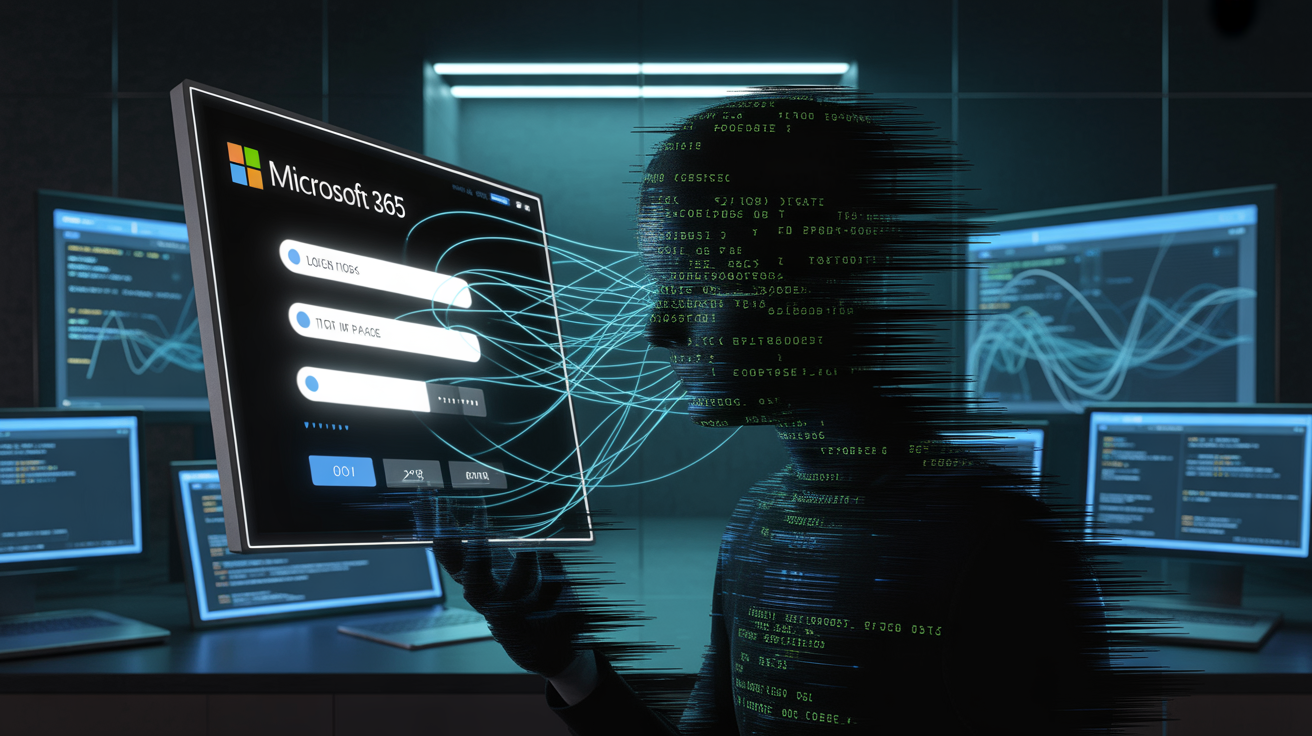A recently released report from cyber security firm Barracuda Networks Inc. has unveiled a sophisticated phishing-as-a-service kit known as Whisper 2FA. This malicious tool targets Microsoft 365 users by stealing credentials and multifactor authentication (MFA) tokens in real time. First identified in July 2025, Whisper 2FA showcases a new level of complexity in phishing operations, utilizing advanced web technologies and layered obfuscation to evade both human and technical defenses.
The unique aspect of Whisper 2FA lies in its continuous credential-theft mechanism. Unlike traditional phishing pages that gather credentials one time, this kit employs AJAX technology, allowing for instant updates without the need to reload the page. This innovative approach enables attackers to repeatedly extract login information and MFA codes until they acquire a valid session token. Victims are kept engaged under the guise of a legitimate Microsoft 365 login process, making detection increasingly challenging.
Barracuda’s researchers have noted the use of various phishing lures linked to Whisper 2FA, including impersonated communications from Docusign Inc., Adobe Inc., voicemail systems, and invoice notifications. Each lure is meticulously designed to create a sense of urgency and trust among potential victims. The platform dynamically rotates its branding and pretexts to avoid detection and enhance click-through rates.
Since its initial detection, the technical capabilities of Whisper 2FA have significantly advanced. Early iterations included developer comments and moderate code obfuscation, while current versions incorporate dense multilayered Base64 and XOR encoding, aggressive debugging traps, and anti-inspection techniques that can disrupt browser tools or obscure the page if tampering is suspected. The kit also performs session-based checks that validate intercepted MFA tokens against the attackers’ command-and-control servers in real time.
Whisper 2FA cleverly conceals its operations within familiar user interfaces. Input fields for email, password, or one-time codes are invisibly connected to hidden scripts that transmit sensitive data immediately upon user interaction. The backend system of the attackers validates each stolen one-time password within seconds. If any attempt fails, victims are prompted to re-enter new codes, creating a continual relay of MFA codes until a valid token is obtained.
Barracuda emphasizes the significance of Whisper 2FA as a marker of the industrial maturity of phishing-as-a-service ecosystems. These kits are continuously refined, sold, or leased, often with professional support. “As phishing kits like this continue to evolve, organizations need to move past static defenses,” the report states. It advocates for a multi-layered approach to security, including user training, phishing-resistant MFA, continuous monitoring, and threat intelligence sharing.
Only through these strategies can organizations hope to keep pace with the relentless innovation observed in phishing campaigns like Whisper 2FA.





































































